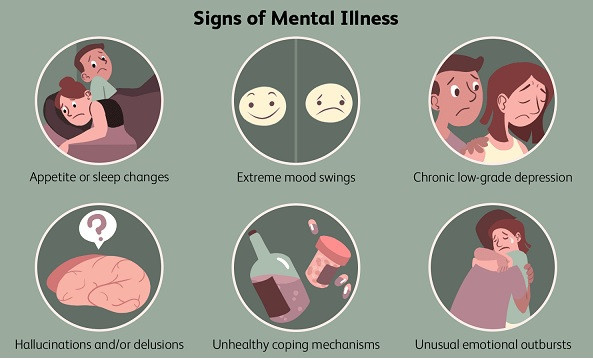2 years ago
Unveiling the State of Mental Health: A Discussion on Promoting Well-being and Breaking Stigma
Mental Health (Symbolic Picture)
In a recent roundtable discussion, experts from various
fields came together to shed light on the crucial topic of mental health . This
article summarizes the insightful conversation, highlighting key points raised
by the participants and their valuable contributions. By addressing important
aspects of mental health, this discussion aims to increase awareness and
understanding of this essential subject.
The Importance of
Mental Health
An Overview Mental health is an integral part of our overall
well-being, yet it is often overlooked. The roundtable participants emphasized
the significance of mental health, emphasizing its impact on various aspects of
life, including personal relationships, work performance, and overall
happiness. According to a survey conducted by the National Institute of Mental
Health, it was found that approximately 20% of adults in the United States
experienced a mental illness in the past year. In a recent survey conducted by
the National Institute of Mental Health, it was found that approximately 20% of
adults in the United States experienced a mental illness in the past year.
Recognizing Mental Health
Challenges

The experts highlighted the need to recognize mental health
challenges and understand the common signs and symptoms associated with
different conditions. By providing a comprehensive understanding of these
challenges, individuals can seek timely support and intervention.
Breaking Stigma
A Collective Responsibility The roundtable emphasized the
urgent need to eliminate the stigma surrounding mental health. Participants
stressed that mental health should be treated with the same seriousness as
physical health. By fostering an environment of acceptance and empathy, society
can create safe spaces for open discussions and seek appropriate help without
fear of judgment. A survey conducted by the World Health Organization (WHO)
revealed that 83% of individuals with mental health conditions experienced
stigma and discrimination in various social settings.
Approaches to Mental
Health Support
During the discussion, the participants explored various
approaches to mental health support. They emphasized the effectiveness of a
multidimensional approach, including therapy, medication (when necessary),
lifestyle modifications, and social support networks. The experts also underlined
the significance of self-care practices in maintaining good mental health.
Incorporating Mental
Health in Everyday Life

The participants stressed the importance of
integrating mental health practices into daily routines. They discussed strategies
such as mindfulness exercises, regular physical activity, healthy eating, and
maintaining a work-life balance. These practices can significantly contribute
to overall mental well-being. A study published in the Journal of Psychiatric
Research revealed that engaging in regular physical activity for at least 30
minutes a day reduced the risk of developing depression by 25%.
Promoting Mental
Health in the Workplace
Recognizing the influence of work environments on mental
health, the experts discussed the importance of creating supportive workplaces.
They emphasized the need for employers to prioritize employee mental health by
offering resources such as employee assistance programs, flexible work hours,
and DE-stigmatized mental health policies.
The Role of
Relationships and Community
The round table participants highlighted the impact of
relationships and community on mental health. They emphasized the importance of
fostering meaningful connections and engaging in social activities. Building
strong support networks can provide a valuable buffer against mental health
challenges. In a recent study published in the Journal of Social and Personal
Relationships revealed that individuals with strong social support networks had
a 50% lower
Seeking Professional
Help
The discussion emphasized that seeking professional help is
a sign of strength, not weakness. The participants encouraged individuals to
reach out to mental health professionals, such as therapists or counselors, to
address their concerns and receive appropriate guidance and treatment.
Mental health is a critical component of our overall
well-being, and it requires open discussions, understanding, and support from
all of us. By recognizing the importance of mental health, breaking down
stigma, and adopting proactive strategies, we can create a society that
prioritizes and promotes mental well-being. Let us strive to foster an
environment where mental health is valued, acknowledged, and supported,
allowing individuals to lead healthier, happier lives.





























